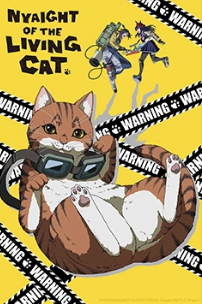English Dub Season Review: The Prince of Tennis II U-17 World Cup Season 2
Based on the manga by Takeshi Konomi, the story continues after Ryoma and Team Japan defeat France and advance to the semifinals. Their next opponent is the top team in the world, Germany. Not only is Germany led by pro tennis player Volk, but Tezuka, who completed the same brutal training alongside Japan, has also joined their ranks. With a fierce battle ahead, will Japan prevail?
On the Technical side, much of the same production team from season one was carried over, as it’s directed by Keiichiro Kawaguchi, who helmed SKET Dance. Studio KAI produces the series, M.S.C. Mitsutaka Hirota provides the scripts, and Chihiro Tamaki handles the musical score. The opening theme song is “Wake Up,” performed by Kindella, while the ending theme song is “Glanz,” performed by Emblem=Adler, a unit consisting of Japanese voice actors of the anime’s German team.
The Prince of Tennis franchise has always embraced a level of exaggeration when depicting the intensity of its matches. Upon research, the show often used metaphors and visual effects to represent players’ battle spirit, enhancing the drama without completely abandoning realism. However, as the series progressed, these creative flourishes started crossing the line into outright absurdity. Instead of simply suggesting that a shot felt heavy or an opponent appeared imposing, the show now presents weirdly outlandish shounen Anime/Superhero shit, such as Tennis players using multiple arms, using a “time loop” ability, or transforming into giants or making the ball behave in physically impossible ways, all without a shred of explanation that even remotely makes sense.
One of the most glaring examples of this shift is how new abilities are introduced. Previously, the series at least attempted to justify these powers within the framework of the game, but now even that pretense is gone. Take “Howling Invisibility” as an example—initially described as a momentary loss of focus by the opposing team, it quickly escalates into something much more extreme. Instead of merely losing track of a partner for a split second, players are seen frantically searching the entire court for minutes, unable to perceive their teammate at all. This complete detachment from logic has made it increasingly difficult to stay invested in the matches.
It’s reached the point that tennis is no longer the heart of the series. The powers have become so wacky and out there that they overshadow both the strategy and emotional weight of the competition. When a ball can suddenly change trajectory mid-air due to unseen wind currents, or a player can seemingly exist in multiple places at once to return shots like something out of Naruto, the show stops resembling a sports anime at all. The issue isn’t just the presence of these supernatural feats—it’s that they have completely taken over. When a single hit spawns a hundred balls, or players disappear into thin air, the sense of genuine competition is lost entirely.
In terms of animation quality and music, the show still retains some of its charm. The visuals remain dynamic, with exaggerated effects adding to the intensity of each match, even if they strain credibility. The soundtrack continues to provide an energetic backdrop, complementing the high-stakes atmosphere the series tries to maintain even if the Kindella song “Wake Up,” which sounds like what would happen if Bruno Mars was singing in Japanese, only adds to the season’s unintentional comedy. However, these elements alone aren’t enough to compensate for the lack of coherent storytelling…
Overall, this was a mixed bag of an anime that leaves more to be desired. The decision to fully embrace super-powered antics has not only stripped the show of its sports foundation but also diminished the emotional depth of its matches. Instead of letting the competition naturally unfold, the series now leans on gimmicks and melodrama while disregarding established rules. Matches no longer unfold naturally, and instead of letting the games speak for themselves, the show resorts to gimmicks and rule-breaking melodrama. With the protagonist not even participating in a single match this season, it’s hard not to feel detached. If the series continues in this direction, it will be riding on brand recognition and nothing else. While long-time fans may stick around, this installment makes it hard to recommend, and I hope they learn from these mistakes going forward…

























"There are also other characters that come and go (also owned by the Warner Bros. Discovery conglomerate media company)."
Huh. Is that just referring to other characters from the show itself, or is this implying that the new season is going to have cameos from other WBD IPs